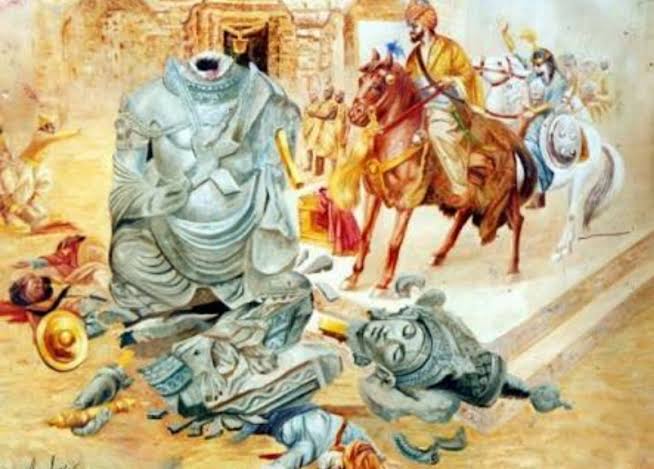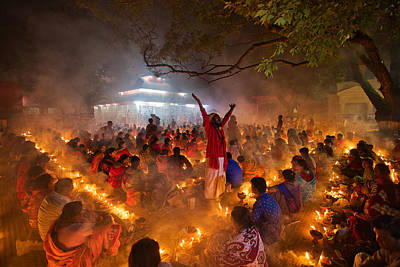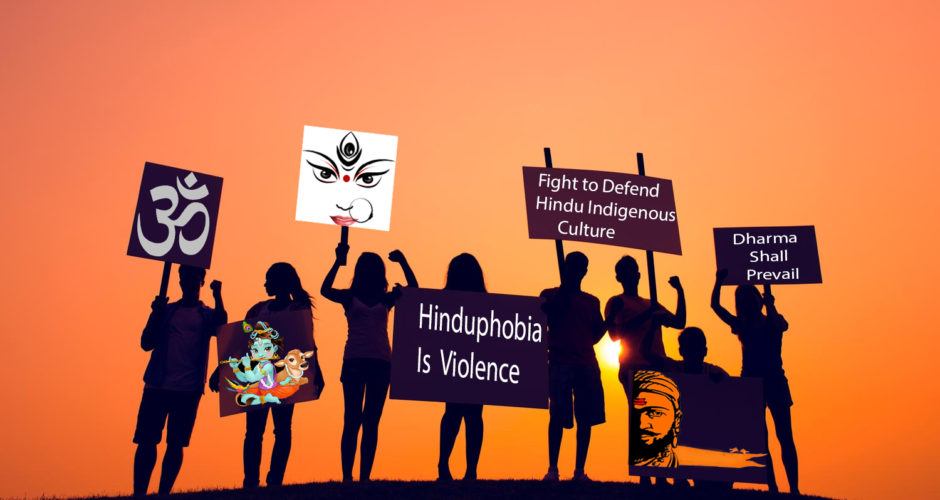 Sanatana Dharma represents the world’s most ancient continuously practiced, indigenous spiritual and philosophical tradition, which focuses on inner knowledge over outer belief and finds its basis in timeless truths and natural law. These truths have been recorded in our scriptures throughout the ages. The wisdom of the Vedas comes from the ancient rishis, nagas and yogis who observed nature and the mind in various states of consciousness, including the state of samadhi or super consciousness.
Sanatana Dharma represents the world’s most ancient continuously practiced, indigenous spiritual and philosophical tradition, which focuses on inner knowledge over outer belief and finds its basis in timeless truths and natural law. These truths have been recorded in our scriptures throughout the ages. The wisdom of the Vedas comes from the ancient rishis, nagas and yogis who observed nature and the mind in various states of consciousness, including the state of samadhi or super consciousness.
Sanatana Dharma is also an intellectual and multi-cultural tradition attached to sophisticated schools of philosophy, its own system of medicine and psychology, architecture, astronomy, metaphysics, mathematics and various art forms.
Hinduism has survived well over 1000 years of persecution, including but not limited to 600 years of Muslim rule, followed by 200 years of colonial rule, which attempted to divide social classes and make India a Christian country. Muslims first invaded India, what is now Pakistan, in the 7th century.
 They were held at bay for many years. When they invaded what is currently India in the 12th century, they used kidnapping and sexual maltreatment of women as a weapon, practiced forced marriages and forced conversions, killed 80 million men, women and children and destroyed 10 thousand Hindu temples, schools and libraries.
They were held at bay for many years. When they invaded what is currently India in the 12th century, they used kidnapping and sexual maltreatment of women as a weapon, practiced forced marriages and forced conversions, killed 80 million men, women and children and destroyed 10 thousand Hindu temples, schools and libraries.
This was the cause of much impoverishment. Prior to this, India was one of the world’s most wealthy countries. Eventually, Muslims gained control and ruled India and its Hindu majority from 1526-1707. Though Hindu resistance, their plight and fight continued throughout. After Islamic rule, British colonialism ruled India from 1612-1947. 20 million Hindus died of starvation during colonial rule.
 We still see great opposition, oppression and exploitation. We see religious and cultural appropriation on a massive scale. We see corrupt, deceptive and unethical conversion efforts on a massive scale. We see a massive amount of bigoted misconceptions and distortions created by Christians, Muslims, academics, politicians and the media.
We still see great opposition, oppression and exploitation. We see religious and cultural appropriation on a massive scale. We see corrupt, deceptive and unethical conversion efforts on a massive scale. We see a massive amount of bigoted misconceptions and distortions created by Christians, Muslims, academics, politicians and the media.
The Hindu Sanatana Dharma and its adherents are under attack. Hindus have become one of the most persecuted groups of people in the history of the world. We have become known as the doormat of the religious world, which is unwarranted. Unfortunately, many of us have become apathetic and passive to the point of our own detriment.
Dharma must be preserved, protected and projected out into the world in an accurate, mature, organized and intelligent manner. There is much in Hindu thought which could benefit humanity, society and the health of  our planet. There is much in Hindu thought which offers benefits to the physical, mental and spiritual health of the individual.
our planet. There is much in Hindu thought which offers benefits to the physical, mental and spiritual health of the individual.
We must learn how to counter the avalanche of false, bigoted and stereotypical information being spread to a bewildered world. We must counter misinformation with facts. We must become able to explain the reality behind false narratives. We must learn to correct popular, yet false notions regarding the so-called “caste system”, and so-called “idol worship”.
We must become able to explain why we revere cows and why we revere nature. We have to become able to offer a brief and simplified explanation of Hindu theology. We have to become able to discuss Hindu monotheism, polytheism, pantheism, animism, panentheism and atheism.
 We have to become able to explain such concepts as Brahman, Atman, ishvara, karma, sadhana, tri-deva or tri-murti, tri-guna and moksha. We have to be able to explain that Sanatana Dharma is not a religion in the modern sense of the word, but a scientific spiritual tradition connected to profound philosophies and steeped in a phenomenal multi-culture.
We have to become able to explain such concepts as Brahman, Atman, ishvara, karma, sadhana, tri-deva or tri-murti, tri-guna and moksha. We have to be able to explain that Sanatana Dharma is not a religion in the modern sense of the word, but a scientific spiritual tradition connected to profound philosophies and steeped in a phenomenal multi-culture.
We should be able to offer an accurate description of Hindutva or Hindu/dharma nationalism and be able to describe its potential benefits for Indian society. We must counteract the accusations that it is an authoritarian movement.
We must explain that Sanatana Dharma is not a single organized religion, but a complex of many diverse groups of people, sharing a variety of beliefs, practices and schools of thought. We have to be able to explain what yoga really is. We have to be able to explain what appropriation is and why it so wrong and offensive. We have to become able to explain the reasoning behind what others see as superstition.
 Christians and Muslims want to sell us on their gods, religious dogmas and doctrines. Hindus do not recognize or worship their deities and for whatever reason, this makes them angry. They not only want to glorify their paths, but also seem to enjoy ridiculing ours. Missionaries go through a good amount of training. They are taught to use scare tactics, bribes, threats and grand promises. They are taught to defame, ridicule and poke holes in Hindu ideologies.
Christians and Muslims want to sell us on their gods, religious dogmas and doctrines. Hindus do not recognize or worship their deities and for whatever reason, this makes them angry. They not only want to glorify their paths, but also seem to enjoy ridiculing ours. Missionaries go through a good amount of training. They are taught to use scare tactics, bribes, threats and grand promises. They are taught to defame, ridicule and poke holes in Hindu ideologies.
They are taught how to make straw-man arguments and how to debate. For this reason, Hindus must also educate themselves about Christian and Muslim dogmas, superstitions and nonsense. We must educate ourselves on misogynistic, intolerant and violent Biblical and Koranic verses. We must educate ourselves on the abundant atrocities involving Christianity and Islam throughout history.
Our treatment of others needs to be a reflection of the way they treat us. We should never resort to divisive, fanatical, elitist, dishonest, unethical or adharmic behavior. We should respect others as much as they respect us. If they believe that we deserve to go to an eternal hell because we are Hindu, then they deserve absolutely no respect whatsoever.
One of the hallmarks of the Hindu Dharma is its diversity and plurality. This, however may also be the cause of some lack of unity. In order to effectively protect, preserve and promote Hinduism, Hindus worldwide must find some organization and common ground. We must come to understand the Hindu fundamentals most agree on, and we must all make a choice to become intellectual warriors.
We must arise and defend dharma, as Hindus have been doing for well over 1000 years. Monotheistic Persia first invaded India in the 4th century and they weren’t the first by far. The Indian Hindus have always fought back against invaders, Abrahamic and otherwise.
 They didn’t just lay down and surrender due to the law of ahisma, as some may think. There was also over 1000 years of resistance against Islam and colonialism. This warfare was the longest conflict involving indigenous-pagan people the world has ever seen. It has been the cause of much unnecessary suffering, poverty and strife, as it left India in a feeble state and it’s people devastated.
They didn’t just lay down and surrender due to the law of ahisma, as some may think. There was also over 1000 years of resistance against Islam and colonialism. This warfare was the longest conflict involving indigenous-pagan people the world has ever seen. It has been the cause of much unnecessary suffering, poverty and strife, as it left India in a feeble state and it’s people devastated.
Many Hindus and Hinduism itself have a victim and/or a loser mentality and image, because many think Hindus just allowed themselves to become enslaved by Abraham-ism without a fight. Quite the opposite is true.
Muslim invaders had great zeal, fighting in the name of Allah, religious supremacy and dominance. While Western Asia, North Africa and Spain fell victim to these Abrahamic invaders, Indian Hindu warriors countered these attacks and successfully resisted or dispelled such hoards for 550 years.
Hindus have never lacked bravery or the resolve to fight back and defend themselves, their heritage and way of life. The Hindu warrior believes in karma and is therefore not afraid of death.
Hindu armies fought off invaders to a great extent and won many battles. Many foreign armies were kept at bay or expelled. While modern day India holds an 80% Hindu majority, other Pagans populations worldwide were easily defeated by Abrahamics and either became extinct, or dwindled into an insignificant and oppressed minority.
Universal Hinduism: A New Vision of Sanatana Dharma by David Frawley.
What Is Hinduism: A Guide for the Global Mind by David Frawley.
Radical Universalism: Does Vedantu Teach that All Religions are the Same by Frank Morales.
The Dharma Manifesto: A New Vision for Global Transformation by Dharma Pravartaka Acharya.
Being Different: An Indian Challenge to Western Universalism by Rajiv Malhotra.
Indra’s Net: Defending Hinduism’s Philosophical Unity by Rajiv Malhotra.































